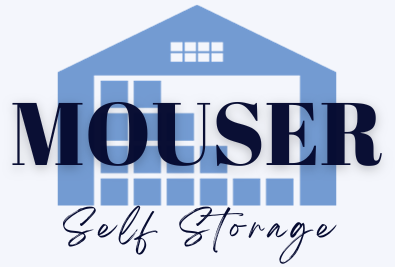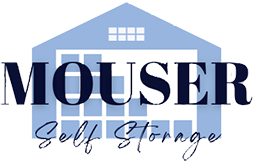Let’s talk about storage unit cost and what goes into it.
When you’re in need of extra space—whether you’re moving, decluttering, or storing seasonal items—a storage unit is often the go-to solution. However, before you start filling up a unit with all your stuff, it’s important to understand the costs involved. Storage unit prices can vary quite a bit, depending on a range of factors.
We are Mouser Self Storage, offering outstanding self storage solutions in South Fort Worth, Alvarado, and Johnson County. Remember our number and call 682-800-3939 for more information.
In this guide, we’ll break down what you can expect when it comes to storage unit pricing.
- Type of Storage Unit
The most significant factor affecting the cost is the type of storage units you choose. You can typically find storage units in a few different options:
- Standard Units: These are basic, no-frills units that come in a variety of sizes, from small lockers to larger rooms. If you’re storing just a few items or some boxes, a small unit (usually around 5×5 or 5×10 feet) will do just fine. Standard units are the least expensive option.
- Climate-Controlled Units: If you’re storing sensitive items like electronics, antiques, or family heirlooms, climate-controlled units are the way to go. These units maintain a steady temperature and humidity level to protect your belongings from extreme heat or cold. Naturally, they come with a higher price tag due to the extra care they offer.
- Drive-Up Units: Some storage facilities offer drive-up units, where you can pull your car right up to the door of your storage space. This makes loading and unloading much easier but may be a bit pricier than a standard unit that’s located inside a building.
- Specialty Units: If you have oversized items, like a car, boat, or RV storage units, there are special storage options tailored for these needs, which can be more expensive due to their larger size.
-
Location, Location, Location Affects Storage Unit Cost
Just like with real estate, location plays a huge role in storage unit prices. Units in urban areas or popular metropolitan cities are often more expensive than those in rural or less densely populated regions. For example, a storage unit in New York City or San Francisco will cost significantly more than one in a small town in the Midwest.
When considering location, think about convenience too. If the facility is right around the corner, it may be worth paying a little extra. However, if you’re willing to drive a bit further out, you might be able to find a cheaper unit.
-
Size of the Unit
It’s tempting to get a huge unit “just in case” you need the space, but the size of the unit you need will directly affect how much you pay. Storage units typically range in size from 5×5 feet to 10×30 feet. Here’s a general idea of what you might expect in terms of size:
- 5×5 (25 square feet): Ideal for small boxes, seasonal decorations, or a few personal items.
- 5×10 (50 square feet): Great for storing items from a one-bedroom apartment.
- 10×10 (100 square feet): Typically fits the contents of a two-bedroom apartment.
- 10×20 (200 square feet): Best for the contents of a three-bedroom house or larger.
- 10×30 (300 square feet): Ideal for large moves or storing vehicles, furniture, or equipment.
The larger the unit, the more it will cost. It’s a good idea to estimate what you plan to store and pick a size that suits your needs. If you overestimate your storage needs, you might be paying for unused space.
- Length of Stay
Storage unit prices can also vary depending on how long you plan to rent the unit. Short-term rentals might be priced on a month-to-month basis, while long-term rentals (for several months or even a year) may offer discounts. Some facilities even offer special deals for first-time renters or long-term commitments, like the first month free or reduced rates if you sign a one-year lease.
If you’re unsure about how long you’ll need the storage unit, a month-to-month rental is more flexible, though it might be a bit more expensive than committing to a longer stay.
- Access Hours and Features
Not all storage units are available for access 24/7. Some facilities may have restricted hours for entry, which could affect your costs. Units with 24/7 access tend to be a little more expensive, so if you don’t need round-the-clock access, you may be able to save money by going with a facility that has more limited hours.
Additionally, other features like security cameras for secure storage, gated access, and on-site staff can add to the cost. While these amenities provide peace of mind, if you’re on a tight budget, you might want to choose a facility that provides basic security without all the bells and whistles.
- Price Range
So, how much does all of this cost? Prices for storage units can range anywhere from $30 to $300 per month, depending on the factors mentioned above. Here’s a rough breakdown of storage unit cost:
- Small, basic units (5×5 or 5×10) might cost between $30 and $100 per month.
- Medium-sized units (10×10 or 10×15) can range from $100 to $200 per month.
- Larger units (10×20 or larger) may run from $200 to $300 or more per month.
For climate-controlled units, expect to pay a premium in storage unit cost, with prices generally starting around $100 and going up based on size and location.
- Additional Fees
Finally, be aware of any additional fees to the storage unit cost. Some facilities charge a one-time administration fee for setting up the rental, while others may have insurance requirements, especially for climate-controlled units. It’s important to ask about these fees upfront to avoid any surprises.
Conclusion
In the end, the storage unit cost depends on several factors, including the type of unit, location, size, duration of rental, and extra features. By doing some research and planning ahead, you can find a storage solution that fits both your budget and your needs.
A final word about Mouser Self Storage
Mouser Self Storage and our sister company, Blue Mound 287 Self Storage, are locally owned and operated. Call us today for the very best in storage solutions including car storage, RV self storage, boat storage units, and small hobby shops.

